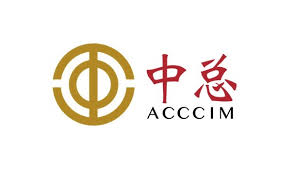ACCCIM President, Datuk Ng Yih Pyng, acknowledges that the Government has exercised due care in identifying areas for rate adjustments, with the intent of mitigating adverse impacts on the rakyat and business community. The Chamber also welcomes the decision to exempt business-to-business (B2B) transactions from service tax, which helps to prevent double taxation across the supply chain.
That said, ACCCIM urges the Government to give careful attention to the timing and sequencing of these measures. Businesses—particularly mid-sized and small and medium enterprises (SMEs)—are already under pressure from rising operational costs. The immediate implementation of the expanded SST may exacerbate this burden, especially amid an uncertain global economic climate and the evolving landscape of US trade policy. Higher business costs could ultimately lead to price increases for consumers, potentially affecting discretionary spending and consumer sentiment.
Of particular concern is the imposition of service tax on rental and leasing, which is expected to raise operating costs for many businesses. The current RM500,000 annual sales threshold for service tax exemption may be too low to shield many micro and small enterprises from these cost increases.
In light of these challenges, ACCCIM appeals to the Government to consider deferring the implementation of the expanded SST until macroeconomic conditions become more stable. This call for deferment is in line with the Government’s recent decision to postpone the e-invoicing implementation for businesses earning between RM1 million and RM5 million annually—from 1 July 2025 to 1 January 2026—demonstrating responsiveness to business concerns over cost and readiness.
In addition to the deferment, ACCCIM also calls for a review and upward revision of the SST exemption threshold, proposing an increase to RM2 million in annual sales. This would provide meaningful relief to a wider group of micro and small enterprises.
ACCCIM further echoes the concerns raised by key industry groups from the construction, services, and manufacturing sectors regarding:
- The timing of the SST expansion,
- Increased operational costs,
- Lack of clarity in implementation details, and
- Insufficient preparation time.
These stakeholders have also pointed to the importance of clear transitional rules, which allow for exemptions on contracts that straddle past the implementation date.
To ensure smooth and effective execution of the SST expansion, ACCCIM strongly urges the Government to engage more actively and extensively with all relevant industry stakeholders. On this note, ACCCIM urges the Government to have active and wider engagement with all stakeholders, considering the industry stakeholders’ interests in ensuring clear and smooth implementation.
In conclusion, ACCCIM reiterates its support for the Government’s fortifying of sound fiscal management to achieve revenue sustainability and expenditure optimisation while ensuring the tax reform’s fairness, efficiency and competitiveness for businesses and consumers. It is widely acknowledged that the SST framework is less structured, transparent and broad-base taxation compared to the Goods and Services Tax (GST).









